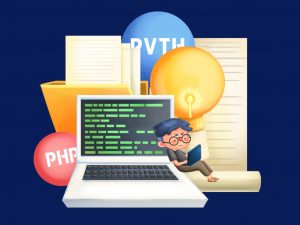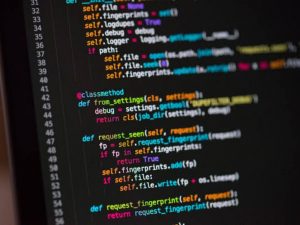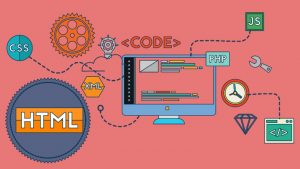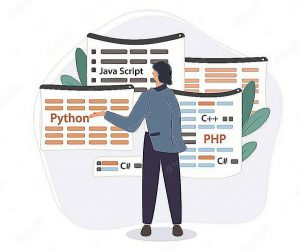How Long Does It Take To Learn python? (From beginning to finish): You’ve probably heard of Python’s limitless potential in the world of programming. When you sit down at your computer, full of enthusiasm and drive, the first thing that springs to mind is probably: how long does it take to learn Python? Here’s where you’ll discover the answer to that!
Python is popular among professionals all across the world. Python is the most used programming language, according to IEEE Spectrum, an industry journal published by the world’s biggest international engineering organization. This is due to Python’s simplicity and versatility, which is a winning combination.

Also see: Best universities to study computer science in the United Kingdom
Why Should You Learn Python?
Python is utilized in a variety of areas, including banking, insurance, healthcare, business services, and marketing. Python is a standard language for creating machine learning models, therefore your industry’s specialists are likely to write code in it. Furthermore, Python and R are the two most widely used programming languages in data research. This field is used in nearly every industry, allowing us to collect and analyse massive volumes of data. Python is also widely utilized in the creation of online applications. YouTube, Instagram, and Spotify all use this programming language.
Python’s ease of use and “elegance,” as developers like to call it, make it an excellent choice for new programmers. It is now the first programming language taught in computer science courses at leading institutions across the world (rather than C). It’s less difficult to learn than other languages, yet it offers similar opportunities. To make a long tale short, Python allows you to build software with fewer lines of code than Java or C#. This, along with the fact that Python programming is reportedly one of the most demanded professional skills, is why you should get started learning it right away.
Also see: Easiest programming languages to learn in 2021
How Fast Can You Learn Python?
Unfortunately, there is no shortcut in learning python. Learning Python programming relies significantly on your background and unique abilities, just like learning any other skill. The following are the aspects that I believe are most crucial for learning Python.

1. Learning Method: There are no hard and fast rules when it comes to mastering a new talent. We all have preferences when it comes to learning approaches that encourage us to participate more and produce greater results. It is critical to select learning methods that are most appropriate for us and that aid rather than impede the learning process.
Keep in mind that some talents need specialized training. If you intended to create interesting short tales, for example, you should write as much as possible. The same is true in programming: you must write a lot of code to become a Python expert. You will comprehend the language but not be able to write it if you stick to theory. Choosing a learning approach that is tailored to your skills as well as a skill-specific training strategy will have a significant influence on how quickly you learn Python.
Also see: Salary of Google’s employees in 2021
2. Cognitive Abilities: Our mental capacities differ as humans: visual memory, computational skills, capacity to understand abstract concepts, and so on. While some are bestowed upon us at birth, others are acquired through time. All of these influence our learning style and cause us to grasp some topics more quickly than others. Nobody is perfect at everything, and that’s just fine. Motivation and engagement are more important than ability while learning a new skill.
It’s impossible to estimate the universal time required to understand a programming language like Python because of our natural and acquired variances.
3. Previous Programming Experience: Learning computer programming is more challenging for someone who has never written a code before than for someone who is expanding their programming array after many years of formal growth. Because all programming languages are based on the same logic, learning a new one will be very simple after you’ve become used to reasoning like a programmer. This holds for anything we do: if you’ve perfected drawing, it’ll be simpler to learn to paint
Nevertheless, this does not rule out the possibility of learning Python without prior programming expertise. What I’m meaning to convey is that having prior experience will make the process go more quickly. A python is a great option for beginners since it’s easy to learn and assists you to establish excellent programming skills.
Recommended: Best online universities in the world today
4. Time Devoted to Learning: The duration required to learn Python is dependent on the time allotted for training. Assuming two individuals have equivalent coding skills and the other qualities listed above, but varying amounts of spare time (e.g., 3 hours per day vs. 3 hours per week), they will not need the same length of time to begin creating code. Furthermore, the regularity and consistency of training have an influence on the entire exercise, benefiting those who do it regularly.

RECOMMENDED: Advantages and Disadvantages Learning online
How long does it take to learn Python from start to finish
Determining the time needed to learn Python is challenging since there are so many variables. Note that these are mere estimates that you should fine-tune based on your ability and experience.
On average, learning Python fundamentals takes approximately 2 Months (8 weeks). Basic syntax, links, if statements, loops, variables, functions, and data types are all covered. How fast you adapt to the Python language basics relies on how much time you spend studying the language, just as it does with any new programming language. The length of your learning depends on your schedule, as well as what you want to study and how much you want to learn.
Learning the fundamentals takes around 6-8 weeks on average. This gives you ample time to grasp the majority of Python code lines. If you want to become an expert in Python and its area and work in data science, you’ll need months or years of study. The online and classroom classes claim that one can learn Python in one or two months, but that is only the beginning; learning Python entirely is a tough and amazing achievement that should not be underestimated. Studying basic Python as a working professional can take a lot longer than learning it as a student. Joining a coding Bootcamp is the greatest method to learn.
Another alternative is to dedicate five months to learning Python. For those of you who work full-time, this is for you. It must be planned to spend 2-3 hours every day on the computer. One day you’ll learn, and the next day you’ll put what you’ve learned into practice. This should be done daily to guarantee that you learn consistently and effectively. Complete data science online certification will assist you in mastering python as well as other tools and languages required to succeed in this fast-paced business.
Learning Python necessitates commitment and honesty. The learning process is time well spent because it significantly increases your career chances.
Recommended: How to track an IPhone Device Using IMEI or Apple ID
How To Learn Python Within 2 Months (8 Weeks)
1. Set a Goal: Make a goal for yourself before you begin studying Python. What do you hope to accomplish using Python? Want to automate your daily routines, build a web application, or make a data analysis tool? You will have a clear direction on what to learn and how to learn it after setting a goal.

Determine what drives you. The good news is that anyone who has the correct motivation can become highly proficient in Python.
You can find it difficult to stay awake as a beginner while trying to memorize syntax. But, you would gladly stay up all night to complete a project if it required using the foundations of Python to perform practical tasks.
What can we learn from this? You must discover what inspires you and become enthusiastic about it. Pick one or two areas of interest to get started:
a. Data Science / Machine learning
b. Mobile Apps
c. Websites
d. Games
e. Hardware
f. Robots
2. Install Python: The first step in learning Python is to install it on your computer. Python is a free and open-source language, and you can download it from the official website. You can choose between Python 2 and Python 3, but it is recommended to learn Python 3 because it is the latest version and has more advanced features.
Recommended: How Long Does It Take To Learn Coding? Here Is The Truth
3. Learn the Basics: The next little step is to understand the fundamentals of Python after it has been installed. Understanding variables, data types, operators, and control structures falls under this category. Reading the official Python documentation or viewing online tutorial videos are good places to start. You may also find a ton of books and online tutorials that will teach you the fundamentals of Python.
Here are some helpful resources to learn the fundamentals of Python without losing interest:
a. Python for Data Science Foundations Course at Dataquest. Python syntax is taught by Dataquest as part of the data science curriculum. For instance, while analyzing meteorological data, you’ll learn the fundamental Python commands.
b. From the fundamentals to more complex programs, Learn Python the Hard Way covers Python principles.
c. The tutorial for Python can be found on the main Python website.
I must stress this again: study as much syntax as you can, then continue to bigger things. The ideal amount of time for this period is a few weeks, but no longer than a month. You will learn more quickly if you start working on tasks as soon as possible. The syntax is always available for later reference, if needed.
A brief reminder: Study Python 3, not Python 2. Sadly, many online “learn Python” resources still only teach Python 2. Bugs and security flaws won’t be rectified, though, because Python 2 is no longer supported.
RECOMMENDED: Benefits of social media to students in school
Python Learning Levels
Python has its own set of levels to master:
- Elementary Python
- Advanced Python
- Professional Python
Learning basic Python allows you to become acquainted with syntax, keywords, data types, functions, and classes, among other things. An intermediate coder can learn this in around 8 weeks.
Advanced education Python has features such as multi-threading, data synchronization techniques, socket programming, socket programming, database programming, and so on. It would be determined by the nature of the task. The time it takes to master these strategies is entirely dependent on the learner’s ability level.
Also see: Best online shopping sites in the United States of America
Professional in learning Python is all about using ideas like data analytics, library/package execution, image processing, and so on. These are sophisticated technology. These skills may be learned through both online and offline training. Again, depending on the level of the information, learning these sophisticated procedures might take anywhere from two weeks to a month.

Edeh Samuel Chukwuemeka, ACMC, is a lawyer and a certified mediator/conciliator in Nigeria. He is also a developer with knowledge in various programming languages. Samuel is determined to leverage his skills in technology, SEO, and legal practice to revolutionize the legal profession worldwide by creating web and mobile applications that simplify legal research. Sam is also passionate about educating and providing valuable information to people.